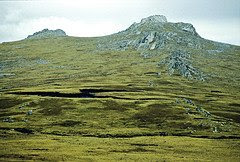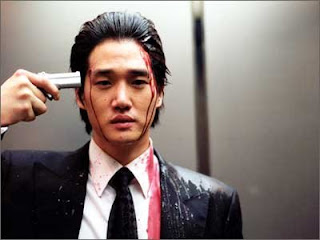For some reason our support staff are largely south American, I have no idea why or how this happened. I guess one person must have got the job, then recommended it to everyone else in their circle? In any case, they speak hardly any English, and every time management wants to pass one a message, I get called over to do the translating. Since the support crew know me as the sole Spanish speaking person on the “other side.” I have become the person they seek out to solve various odd issues, or when they have queries about life in this strange country. However, every time I try to clear things up, I wonder if in fact I have made their confusion greater. For example, stella (one of the cleaning ladies, a Columbian) called me over to ask me what a word meant: vegetarian. I explained that this is a person who eats no meat, but I could tell by her expression that my explanation had not succeeded. The poor woman asked me how could a person live without meat? And why? I explained that such things are common in this country, and that I myself was one of these strange non-meat eaters. At this point I thought Stella might fall over, by I tried to explain that I have an allergy and I really can’t eat meat for this reason. I thought I had got the message across, but some time later it somehow came up that one of my male colleagues was also a vegetarian, and I found myself being pulled aside again. “do you think he is gay?” Stella whispered to me over her vacuum cleaner. I responded that to my knowledge, the colleague in question was quite straight. “yes, but he is one of those….you know…..vegetarians!” and the whole conversations started again, with the end result being that although Stella accepted that I was vegetarian, she would never accept that a man could be.
Now I have come across this issue before, in and out of Latin America (like in France, as recently as ten years ago) so it was not a big surprise for me that eating habits could lead to doubts over a man’s sexuality. But some of the other questions that come my way are harder to anticipate. Recently, I was pulled over by a Peruvian, who had recently started, and had a very worried expression on his face. “who is this Paddington person?” he whispered. I had to ask him to explain, not believing he had just asked what I thought I had heard. It seemed every time he told an English person he was from Peru, they asked if he knew Paddington, and he had thus started to wonder who this famous fellow countryman was, and what he had done to become so well known in our work place. With some hesitation, I found myself explaining that Paddington…was, um, a bear….from Peru. The Peruvian guy looked more baffled than ever, and pointed out, I am sure quite correctly, that there are no bears in Peru. So, I ended up describing the entire story of Paddington turning up in the station of the same name, with a tag around his neck, and being taken in by the Brown family…..feeling that my retelling of the story sounded much weirder and illogical than the whole thing had seemed as a child. Seen through Peruvian eyes, the story did start to seem a bit odd….

